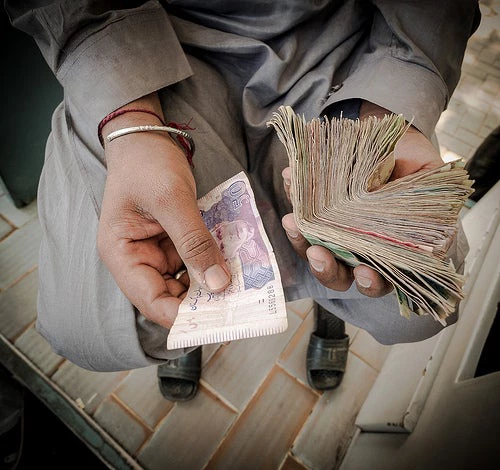Islamic finance can connect millions around the globe to the economy (Credit: The Reboot, Flickr)
In the wake of the global financial and economic crisis, the need for a new development model which is more sustainable and also fosters inclusive growth has become more apparent. Could Islamic finance be the answer? Islamic finance promotes risk-sharing, connection to the real economy and emphasizes financial inclusion and social welfare. Can these dimensions contribute to inclusive growth and sustainable development?
Islamic finance is based on two intrinsic features: risk-sharing and the link between financial transactions and the real economy. Because all financial contracts are backed by real sector assets and risk-sharing among partners, including financing institutions, Islamic financial instruments have relatively more stability than conventional instruments and tend to be more flexible against unanticipated shocks. This critical link brings prudence to the system, promotes equity relative to debt, broadens financial participation, and minimizes overall vulnerability.
Another dimension of Islamic finance is the promotion of economic welfare and social justice guided by the objectives of Shariah. Overall, Islamic financial instruments emphasize morality and ethics in business, respect for property rights and contractual obligations, and pursuit of good governance, specifically though prohibition of riba (interest) and of gharar (ambiguous contracts), and other social redistributive and philanthropic tools such as zakat (obligatory alms), waqf (endowment) and sadaqah (charity).
Whether Islamic finance is a catalyst for inclusive growth and sustainable development is not as straightforward as one may hope. While the inherent features of Islamic finance confer several advantages, the full potential of a complete Islamic economy has yet to be realized. The size of the Shariah-compliant assets is tiny relative to overall financial assets.
In addition to the main challenge of achieving balanced growth in practice, there are several other areas of Islamic finance which need significant improvements, including regulatory oversight, tax treatment, insolvency frameworks, standardization, risk-management practices, and the level of awareness. Realizing the potential of Islamic finance will also require capacity building for regulators, policy makers and market professionals.
Despite these limitations, Islamic finance has tremendous potential to serve as a tool for financial inclusion through leveraging the entrepreneurial potential of micro, small and medium enterprises (MSMEs) across sectors and bringing the financially underserved into the economic mainstream. Presently, a predominantly debt-based system poses formidable constraints to MSMEs. Islamic finance could also increasingly provide long-term funding for infrastructure and other development projects critical for sustainable growth, as well as meaningfully contribute to financial stability.



Join the Conversation